In the second and final part of our focus on World Environment Day, meet Shubhangi Salinkar, a young design student from IIT-Bombay. She has created the Little Explorer Bag, a handy kit, meant to engage kids with nature, by using colourful and easy-to-navigate tools
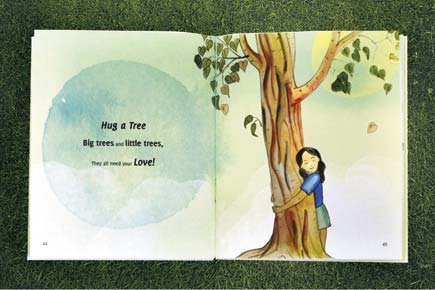
For most urban children, nature is what they see on the television or experience on a holiday. Be it due to lack of avenues or time, they are unable to form a bond with nature. Shubhangi Salinkar, a Visual Communication student of Industrial Design Centre (IDC), IIT Bombay, decided to tackle this problem for her project for the Design and Degree Show 2015.
ADVERTISEMENT
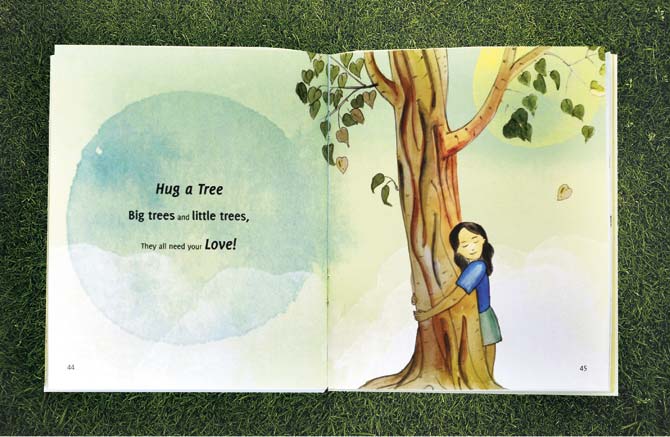
A page from the field guide that is a part of the Little Explorer Bag designed by Shubhangi Salinkar. All the artwork was created by her
The five-day event that begins on June 13 in IIT Bombay, will comprise of a seminar, discussions and an exhibition. “Children often know the names of plants and animals, but they may never have even seen them for real. They might not have touched a leaf even,” feels the 24-year-old student.
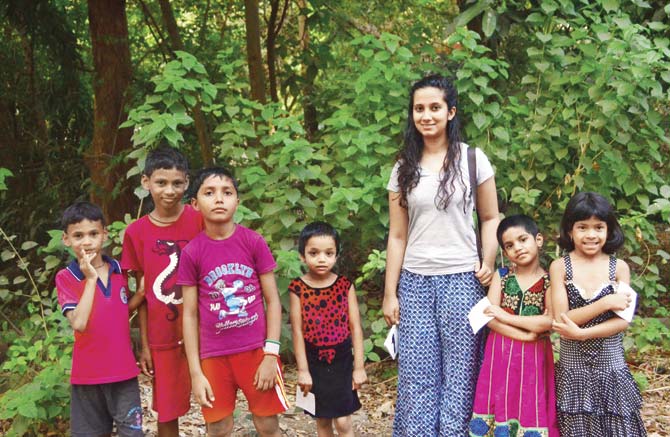 Shubhangi Salinkar with some of her young participants on a nature trail. Pics courtesy/Shubhangi Salinkar
Shubhangi Salinkar with some of her young participants on a nature trail. Pics courtesy/Shubhangi Salinkar
Green quest
Salinkar’s solution was simple. To reconnect urban children to the natural environment with a handy kit she created the Little Explorer Bag (LEB). This set was created to give children a less structured, more enjoyable, yet informative, engaging natural experience, without a field guide’s presence, under a watchful, advisory eye.

For her research for LEB, Salinkar referred to a study by David Sobel, Director of Teacher Certification Programs in the Education Department at Antioch New England Graduate School, and the author of Beyond Ecophobia. Poring over his notes, she grew more aware of how the disconnect with nature is bound to affect a child’s psychology. Hence, the focus of her project was first-hand contact for children to spend time in, learn, and enjoy the experience of nature.
Finding nature
It was probably the scepticism of her professor guide Raja Mohanty that pushed Salinkar to conceptualise a self-guided nature trail (without a field expert’s presence). She was initially planning to work on a documentary about urban children’s disconnect with the nature around them.
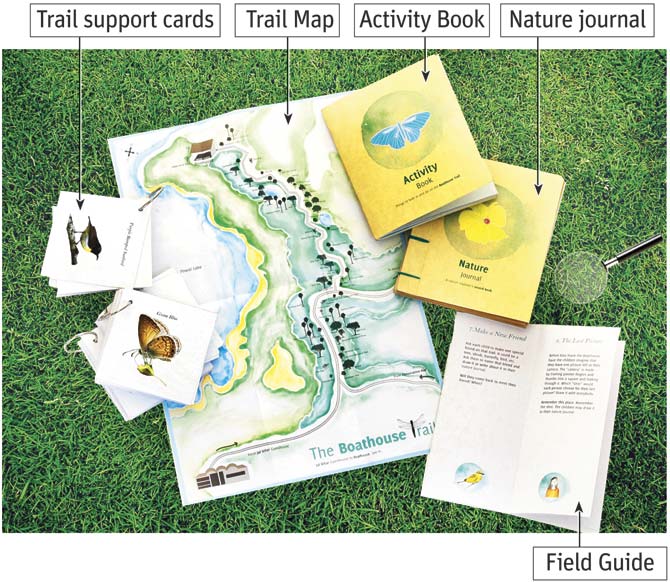
Then, in July 2014, she contacted the Bombay Natural History Society’s Conservation Education Centre, and tagged along for their guided tours of Sanjay Gandhi National Park in Borivali. Taking a cue from their tour guide, she decided to spend time with the children from the IIT-B campus, and take them on nature walks in August last year.
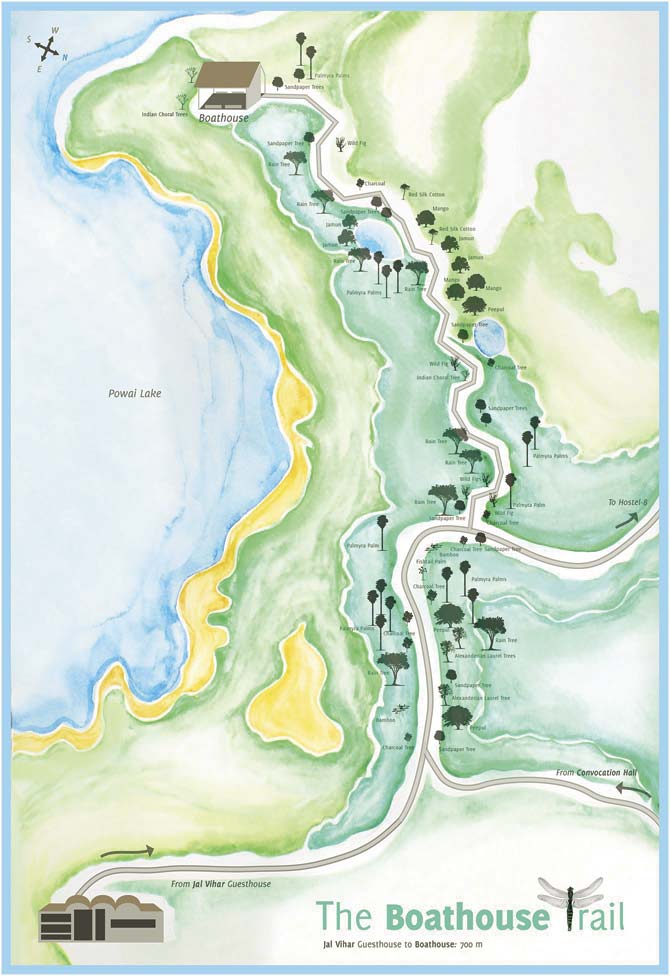
The Boathouse Trail was devised with IIT Lakeside as the test area
The last tested trail was organised in November 2014. After three months of on-field research, Salinkar created the LEB a kit to enhance the experience of a nature trail (see box) . Aimed at children between ages five and 14, the kit was customised for IIT-B Lakeside, a pilot natural location.
Obstacle course
Post research, it was time to construct. In one and half month’s time, Salinkar painstakingly sketched and painted the flora and fauna by observing actual samples along the trail. She experimented with fonts and chose vibrant shades off the pastel palette to make it attractive to the target audience. “We don’t have kits like these in the Indian market.
Most available products are not comprehensive and academic. Abroad, especially in the US, there are generalised kits,” she informs. She also referred to a five-year old survey compiled by World Wildlife Fund India (WWF) of the flora and fauna along IIT-B Lakeside.
The biggest challenge she faced was convincing parents of children. They were sceptical and at times, discouraging. But Salinkar soldiered on to coax the children uncomfortable, and afraid of it to get close to nature. “My competition was with the video games! But, astonishingly enough, after a few cribs, the children began enjoying themselves — climbing trees, identifying leaves and birds in the IIT-B campus,” she recalls.
The young designer is also ready with her first documentary, Lobtuk, which chronicles a volunteer’s journey in Ladakh’s schools. While the LEB kit cost Salinkar R900 to construct, she is optimistic that when created on a larger scale, it can cost as little as Rs 250.
The kit can be customised to various natural pockets in urban areas and incorporated into nature excursions initiated by schools or nature organisations. In fact, an international school in the city has approached her to devise such a kit for the gardens within their premises. At best, Salinkar hopes the LEB can act as a trigger to generate empathy and sensitivity among children towards nature.
Log on to: www.ddsidc.com/portfolio/the-little-explorer-bag-reconnecting-urban-children-to-nature/
 Subscribe today by clicking the link and stay updated with the latest news!" Click here!
Subscribe today by clicking the link and stay updated with the latest news!" Click here!






